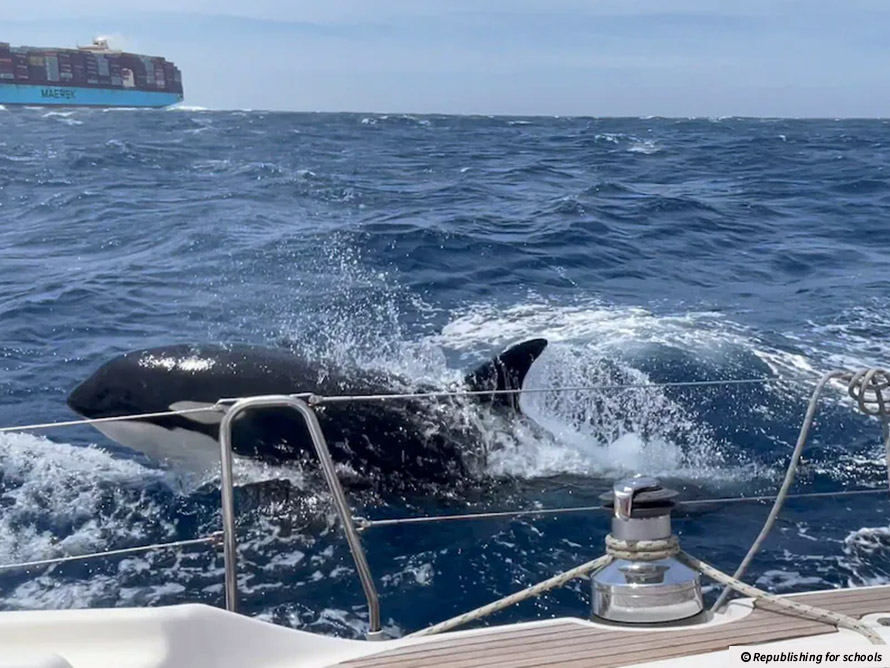Is this how animals get revenge? Experts disagree on why the world's top marine predator is attacking boats. But the trend may be spreading to other populations in Europe.
Killer whale White Gladis leads war on yachts
 Maritime mischief: There was a 298% increase in orca-boat interactions from 2020 to 2023.
Maritime mischief: There was a 298% increase in orca-boat interactions from 2020 to 2023. Glossary
Encircle - Form a circle around
Matriarch - A female leader of a family or community.
Vendetta - A prolonged angry falling out or campaign against someone.
Solitary - Lonesome; alone.
Juvenile - A juvenile is a child or young person who is not yet old enough to be regarded as an adult.
Cosmopolitan - Having a worldwide outlook and taking an interest in many different cultures or ideas.
Vocalisations - A sound produced by the voice.
Captive - Someone or something who is kept in a certain space by a person or group.
Habitation - The fact of living in a particular place.
